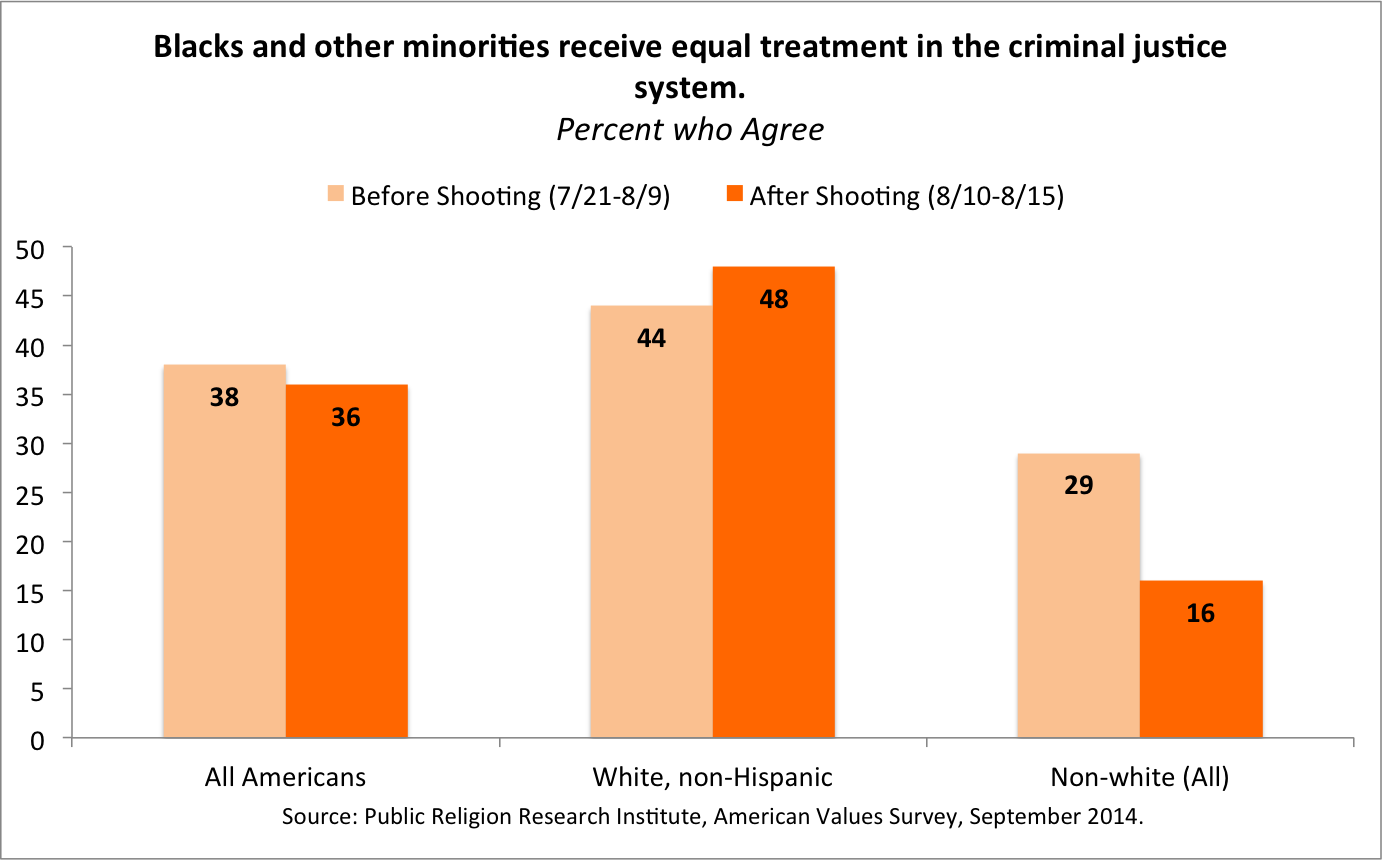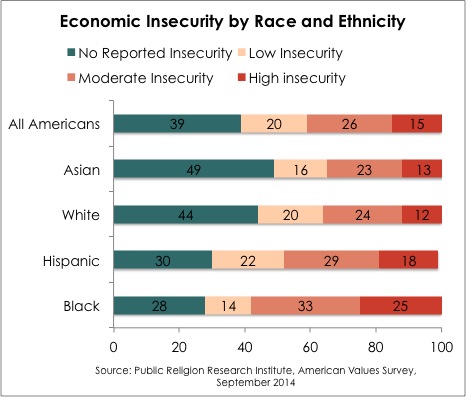Nearly two months have passed since police officer Darren Wilson shot unarmed teenager Michael Brown in Ferguson, Mo. Even though the National Guard has withdrawn troops and protests have more or less come to a standstill, ominous tension persists.
Brown’s death has exacerbated a feeling of injustice among Ferguson residents and the rest of the country, especially among racial minorities. In the weeks preceding the shooting, fewer than 3-in-10 (29 percent) non-white Americans agreed that blacks and other minorities receive treatment equal to that of whites in the criminal justice system. That number plummeted 13 percentage points—to 16 percent—immediately afterward.
Part of this lack of confidence in the criminal justice system might be due to the fact that the grand jury hasn’t ruled on indicting Wilson—and likely won’t make a decision until mid-November. As due process crawls forward, protestors remain a presence in Ferguson, with an atmosphere that vacillates between relative tranquility and civil disorder. Four days of intense protests are slated to begin on Friday and carry through until Columbus Day.
Black Americans, who feel the strongest that the criminal justice system is not colorblind, are also the ones plagued with the most economic disparities. A majority (58 percent) report moderate to high economic insecurity in their household in the past year, compared to 41 percent of all Americans.
The unemployment rate for black Americans is also more than double that of white Americans, and more than one-in-four black Americans live in poverty. Almost one-third (31 percent) of black Americans rank a lack of jobs in the country as the most important economic issue, while nearly one-quarter (24 percent) say the largest issue is the increasing gap between the rich and the poor.
Rather than characterize the unrest in Ferguson as an isolated incident in a small Midwestern suburb, data from PRRI’s 2014 American Values Survey suggest that the events in Ferguson mirror Americans’ deep discontent about racial and economic inequality at the national level.

